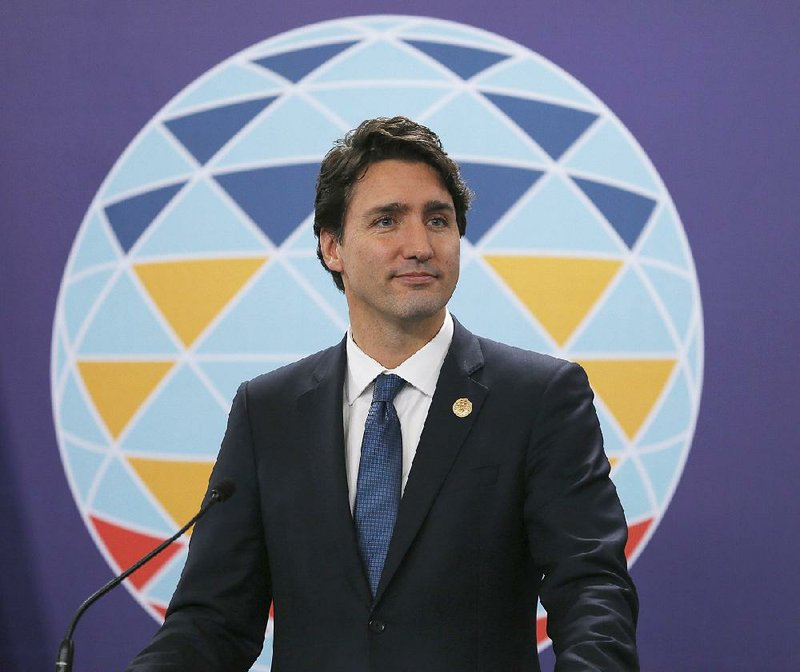TORONTO -- Canada's new Liberal government said Tuesday that it will resettle 10,000 Syrian refugees by the end of the year and another 15,000 by the end of February.
Prime Minister Justin Trudeau had wanted to resettle 25,000 refugees in Canada by Dec. 31 but faced push-back after the deadly attacks in Paris on Nov. 13. Immigration and Refugee Minister John McCallum said the party wanted to do it fast but also wanted to do it right, so it is taking a little more time to resettle them.
The government said health and security screenings will take place overseas. Once those are complete, refugees will be flown to Toronto and Montreal, largely on chartered aircraft. Military aircraft will assist if needed.
"We will welcome them with a smile," McCallum said. "This is a wonderful humanitarian gesture by all Canadians."
Tuesday's announcement could raise alarm in the U.S., where many Republican governors have said they don't want Syrian refugees.
The U.S. plans to take 10,000 over the next year. Germany saw 758,000 refugees and other migrants arrive between January and October. Sweden is expecting about 200,000 this year.
Canada will be working closely with the United Nations Refugee Agency, which will be contacting some refugees by text message to ask whether they want to go to Canada. Syrian refugees in Jordan, Lebanon and Turkey are being targeted.
McCallum said they will choose the most vulnerable, whatever their religion might be.
Canadian Defense Minister Harjit Sajjan said military barracks are being prepared only as a precaution if temporary accommodation is needed. The government said it will spend $510 million over six years on the resettlement effort.
Canada's commitment reflects the change in government after last month's election. Former Conservative Prime Minister Stephen Harper, who lost the Oct. 19 election to Trudeau, had declined to resettle more Syrian refugees, despite the image of a drowned 3-year-old boy washed up on a Turkish beach. The boy had relatives in Canada, and the refugee crisis became a major campaign issue.
Brad Wall, the Conservative premier of Saskatchewan province, had said he had concerns about the original deadline of taking in 25,000 refugees by Dec. 31 but that he believed Canada should welcome the refugees.
Toronto Mayor John Tory said he's confident in the government's screening process and fully supports the revised timelines.
"It is heartening to see our nation live up to its reputation on the world stage, and Toronto is ready to do our part," Tory tweeted.
More than 4 million Syrians have fled their country since the conflict began in 2011.
According to data released Tuesday, the number of refugees arriving in the European Union from violence-scarred regions of the Middle East and Africa is set to fall in November as traveling conditions worsen and member states looked to strengthen the bloc's external borders.
Migrants crossing the Mediterranean Sea to reach the EU this month fell to 116,579 through Monday, compared with 220,535 in October, according to the U.N. refugee agency.
The violence in nations such as Libya and Syria has spawned an unprecedented wave of more than 860,000 people seeking shelter within the EU this year. The influx opened divisions within the bloc as German Chancellor Angela Merkel insisted that Europe honor its asylum commitments while other leaders, such as Hungary's Viktor Orban, complained of the strain on their communities.
The number of people entering Hungary slowed to a trickle this month after Orban closed the country's border with Croatia on Oct. 18. Austria overtook Croatia as the nation with the most arrivals during the first two weeks of November.
Information for this article was contributed by Rob Gillies of The Associated Press and by Ian Wishart and Geraldine Amiel of Bloomberg News.
A Section on 11/25/2015

